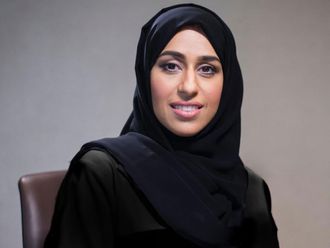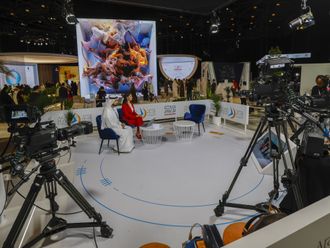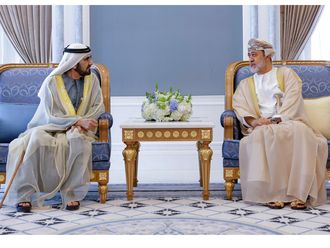Abu Dhabi: The UAE will draw up a national strategy for protection of women and children by the end of this year, a senior government official told Gulf News.
"The National Strategy for Childhood and Motherhood will help focus the efforts of the various bodies working in the country. It will go a long way in the protection of women and children," said Dr Amal Al Qubaisi, member of the Federal National Council (FNC). She is also a member of the recently established high-level committee tasked with developing the strategy with the help of Unicef.
Al Qubaisi said that as many as 53 different entities in the UAE are working together in the development of the strategy, under the guidance of Her Highness Shaikha Fatima Bint Mubarak, Chairperson of the General Women's Union and the Family Development Foundation.
She was speaking on the sidelines of a one-day forum, organised by the Human Rights department of the Interior ministry, to initiate a dialogue with UAE-based entities that support the protection of women and children.
Lack of statistics
Al Qubaisi said one of the challenges was the lack of statistics on violations against women and children. "Statistics are highly essential. First to acknowledge the situation as it is and then to address it by evaluating it in coordination with all stakeholders," she said.
She said some of the issues in the society stem from clash of traditional values and the fast-paced development of the country and its march into the global arena.
"While we must stride forward, we must hold on to our identity and to our family values," she said.
Speaking at the forum, Brigadier Ahmad Mohammad Nakhira Al Muharami, the head of the Human Rights Department at the Interior Ministry, reiterated that the government is committed to protecting the rights of women and children.
Proactive measures
"Violence against women and children is not a part of our society and culture, but it is important to take proactive measures," he said.
The forum recommended the preparation of a national database and highlighted the need to research the situation of women and children throughout the country.
"On a national level, there is need to evaluate, study and analyse the situation of children and women regularly, including children with disabilities," one of the forum's recommendations said.
It also called for federal and local governmental bodies as well as civil society organisations to team up to protect women, children and families through the development of a mechanism to ensure the continuity of partnership and networking.
- UAE ranks 29th out of 177 countries in terms of woman development worldwide
- UAE ranks top most in the Arab World and GCC countries in the field of women empowerment
- UAE is one of the highest in the world in the participation of women in higher education.
(Source : UNDP report on human development for 2007-2008)
Passive violence
Passive violence, which gets the least attention of authorities, is the type of violence which is most dominant in Gulf societies, a health official has said.
"Amongst the two types of violence, active and passive, passive violence is most dominant in Gulf countries, because there is no legislation to prevent this from happening," Professor Tariq Ali Al Habib, consultant and adviser psychiatrist at Shaikh Khalifa Medical City, said
"The problem is no one will get prosecuted for this offence, as compared to active violence, which is curbed by the presence of strict legislation and enforcement," he said.
He was presenting a paper at the forum organised by Interior ministry for institutions that support protection of women and children.
Physical and sexual violence, for example, are active violence, while passive violence refers to using foul language, rejecting, ignoring and so on.
"When left unresolved passive violence may lead to active violence," Al Habib said.
He called for workshops to prepare men and women before they are able to take up the responsibilities of a marriage. His suggestion was included in the recommendations of the forum, which will now be passed on to higher authorities for action.
"Domestic violence is the most prevalent type of violence in our times."











